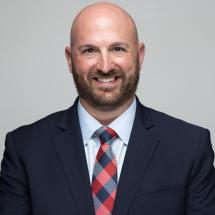Matt Seaholm, President & CEO of the Plastics Industry Association (PLASTICS) released the statement below in response to a ‘report’ issued by the anti-recycling organization, Greenpeace, in which it claims that the act of recycling is a “myth:”

“The activists at Greenpeace cannot call themselves environmentalists while simultaneously discouraging recycling as part of the solution to our world’s waste problems. There is no question that we as a society can and must recycle more. However, their assertions that recycling can’t keep plastic materials within the circular economy is disingenuous and irresponsible. Recycling is real, and the claims that it can’t ever work, made in this document, will likely result in unnecessary waste and public reaction that could actually cause greater environmental harm.
“The claim that ‘mechanical and chemical recycling of plastic waste has largely failed,’ is a desperate attempt to counter the billions of dollars in investments the plastics and recycling industries have made into new technologies and solutions to make products more recyclable.
“Nowhere in the Greenpeace-created document is there a focus on the value that plastics provide. One example is eliminating food waste to ensure we reduce world hunger, get much-needed produce to areas that don’t have access to nutritious, fresh food, and reduce food waste emissions. Especially during a time of heightened food uncertainty, global food shortages, and greater demand, plastic must be embraced for its ability to build a reliable, sustainable food supply chain across the world economy. Another example is the essential role plastics play in the manufacture, transport, and administration of health care, vaccines, and immunizations, successfully contributing to global scientific advancement.
“The Plastics Industry agrees that we don’t recycle enough plastic. The difference between our industry and Greenpeace is that we understand the necessary action needed to preserve a material that saves lives and improves our overall safety and quality of life through responsible use and recycling instead of creating false narratives.”











